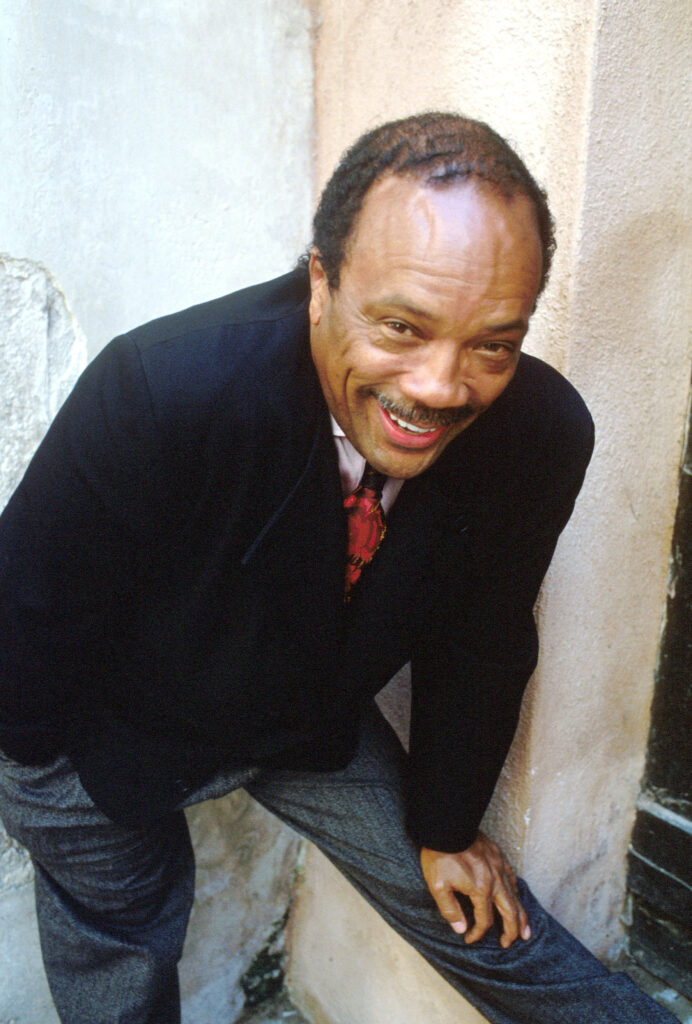
The world of music and entertainment mourned the profound loss of a true titan, Quincy Jones, who passed away at the age of 91. His publicist, Arnold Robinson, confirmed that Jones died on Sunday night at his Bel Air home in Los Angeles, surrounded by his loving family. A figure of unparalleled influence, Jones leaves behind a vast and extraordinary legacy that touched virtually every facet of American rhythm and song, shaping cultural landscapes for decades.
In a heartfelt statement, his family acknowledged the profound void left by his passing, reflecting on his indelible mark: “Tonight, with full but broken hearts, we must share the news of our father and brother Quincy Jones’ passing. And although this is an incredible loss for our family, we celebrate the great life that he lived and know there will never be another like him.” They further expressed, “He is truly one of a kind and we will miss him dearly; we take comfort and immense pride in knowing that the love and joy, that were the essence of his being, was shared with the world through all that he created. Through his music and his boundless love, Quincy Jones’ heart will beat for eternity.”
From his humble beginnings running with gangs on the South Side of Chicago, Jones ascended to the apex of show business, not only as a creative force but also as one of the first Black executives to thrive in Hollywood. His career spanned an era when records spun at 78 rpm, yet his innovative spirit kept him at the forefront of musical evolution, shaping sounds and careers across generations. The breadth of his work, from orchestral arrangements to groundbreaking pop productions, ensures that his influence will resonate for decades to come, an enduring testament to his genius.
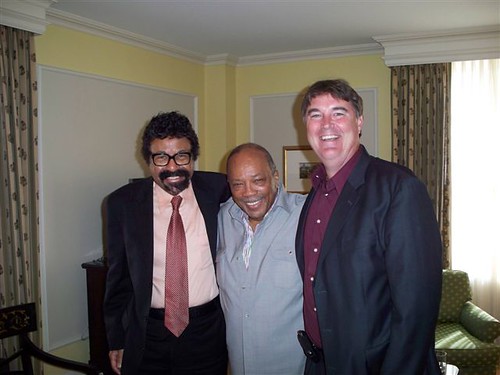
1. **Childhood Struggles and Music’s Salvation**
Quincy Jones’ early life was marked by profound adversity, a stark contrast to the global adoration he would later command. Born in Chicago in 1933, his formative years were shadowed by the emotional struggles of his mother, who was eventually institutionalized. This loss, as Jones himself reflected, made the world seem “senseless” to him, plunging his childhood into a period of disarray and emotional turmoil.
He candidly described his time in Chicago as spent largely “on the streets, with gangs, stealing and fighting.” These experiences left indelible marks, both psychological and physical, as he once recounted to the AP in 2018, showing a scar from his youth: “They nailed my hand to a fence with a switchblade, man.” Such a harsh environment could have easily led to a different path, but a pivotal discovery would fundamentally alter the trajectory of his young life.
Music emerged as his profound salvation, a sanctuary from the chaos that surrounded him. His journey began innocently enough, first by constantly playing a neighbor’s piano in Chicago, drawn to its resonant tones. The true turning point arrived when his father moved to Washington state, and an 11-year-old Quincy discovered a piano on a stage in a small room at a neighborhood recreation center. He described this moment with profound clarity in his autobiography: “I went up there, paused, stared, and then tinkled on it for a moment. That’s where I began to find peace. I was 11. I knew this was it for me. Forever.” This singular encounter ignited a lifelong passion, transforming his despair into a definitive purpose.

2. **Early Musical Awakening and Mentorship**
With music now firmly embedded as his guiding force, Jones rapidly developed his talents, embracing its transformative power. Within a few years of his pivotal piano discovery, he had taken up the trumpet, an instrument that would define his early instrumental contributions and professional identity. This period also saw the formation of one of the most significant relationships of his life: his enduring friendship with a young, blind musician named Ray Charles. Their bond deepened through shared musical exploration, fostering a lifelong connection that would endure through their respective legendary careers.
His burgeoning talent quickly opened doors to formal training, earning him a scholarship to the prestigious Berklee College of Music in Boston. However, the irresistible allure of practical, real-world experience ultimately prevailed. Quincy Jones famously dropped out of Berklee when the legendary bandleader Lionel Hampton extended an invitation for him to tour with his acclaimed band, presenting an opportunity too valuable to decline. This decision, prioritizing immersive professional experience over academic pursuit, underscored his pragmatic and ambition-driven approach to mastering his craft.
The extensive experience with Hampton’s band provided an invaluable apprenticeship, exposing him to the rigorous demands of professional musicianship and the intricate logistics of touring. It was during this period that Jones began to truly understand the critical distinction between artistic pursuit and commercial viability, a lesson he would carry and apply throughout his illustrious career. He continued to hone his versatile skills as a freelance composer, conductor, arranger, and producer, absorbing knowledge and refining his craft from every opportunity presented to him.
His versatility and precocious talent were strikingly evident early on in his career. As a teenager, he found himself backing none other than the legendary Billie Holiday, a remarkable testament to his exceptional abilities and advanced musical understanding even at such a young age. By his mid-20s, Jones had already formed and was actively touring with his own band, demonstrating an innate ambition and a natural leadership quality that far belied his years.
Yet, even with a band he deemed “the best jazz band on the planet,” the harsh realities of the music business became painfully clear and undeniable. Jones later reflected to Musician magazine, acknowledging a critical realization that would redefine his path: “That’s when I discovered that there was music, and there was the music business. If I were to survive, I would have to learn the difference between the two.” This profound insight would deeply shape his strategic decisions, propelling him beyond mere artistry into the realm of groundbreaking executive and entrepreneurial endeavors that would ultimately transform the industry.
Read more about: Snoop Dogg: Facing the Evolution of a Hip-Hop Icon, From Streets to Global Stages
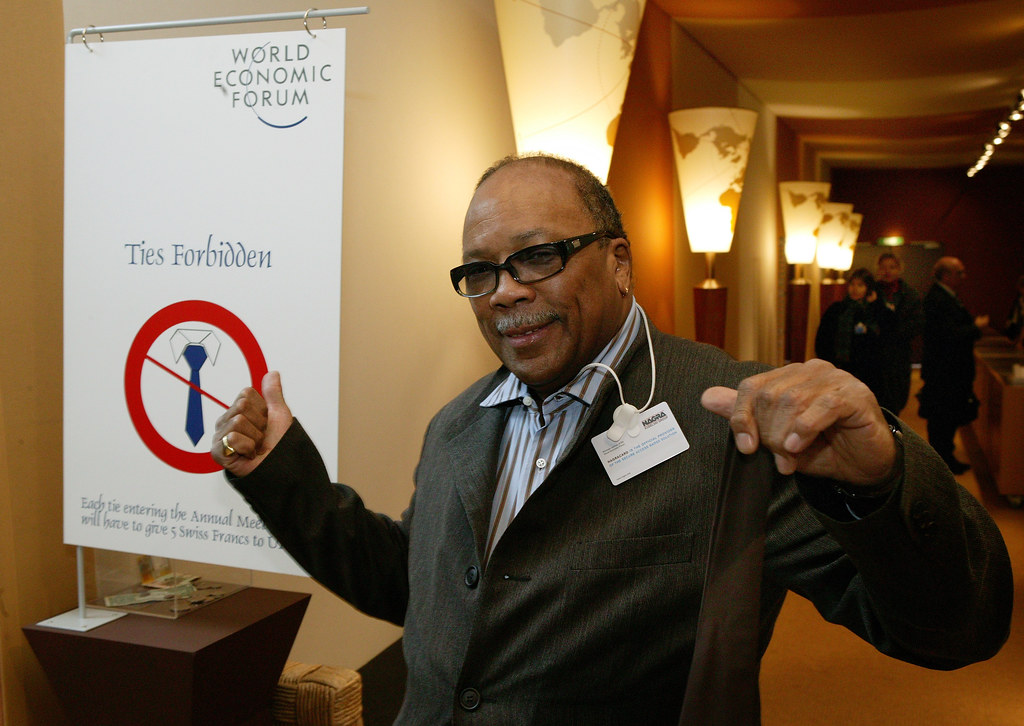
3. **Breaking Racial Barriers as an Executive**
Quincy Jones’s journey was not merely about achieving musical excellence; it was also a pioneering effort in breaking down deeply entrenched racial barriers within the entertainment industry. Recognizing the critical distinction between the artistic craft and the business machinery, he strategically moved into executive roles, shattering ceilings that had long confined Black professionals to lesser positions. His ascent marked a significant shift in Hollywood’s landscape, powerfully demonstrating that talent, vision, and astute business acumen knew no racial bounds.
His trailblazing path included becoming a vice president at Mercury Records in the early 1960s. This appointment was monumental, establishing him as one of the first Black executives to hold such a high-ranking position within a major record label. This pivotal role provided him with invaluable insights into the inner workings of the industry, allowing him to shape careers, influence music production, and navigate complex business strategies on a grand scale, far beyond his individual creative projects.
Further cementing his status as an industry pioneer, Jones made history in 1971 by becoming the first Black musical director for the Academy Awards ceremony. This was not just a prestigious title; it placed him at the undisputed helm of one of Hollywood’s most visible and influential annual events, demonstrating his exceptional leadership, organizational skills, and creative vision on a truly global stage. His prominent presence in such a high-profile role paved the way and opened doors for future generations of diverse talent in executive and directorial capacities across the entertainment world.
Jones consistently applied a philosophy deeply rooted in fairness and profound respect, a personal credo that informed both his private life and his extensive business ventures. As he articulated in his autobiography, encapsulating his guiding principle: “My philosophy as a businessman has always come from the same roots as my personal credo: take talented people on their own terms and treat them fairly and with respect, no matter who they are or where they come from.” This unwavering principle guided his interactions and strategic decisions, fostering environments where talent could truly flourish, regardless of background or origin.
Even his foray into film production, with the critically acclaimed “The Color Purple,” though ending in personal disappointment with 11 Oscar nominations but ultimately no wins, further underscored his boundless ambition and unwavering commitment to opening doors for others. Through this powerful film, he notably introduced Oprah Winfrey and Whoopi Goldberg to filmgoers, showcasing his extraordinary knack for identifying, nurturing, and elevating talent beyond the strict confines of music. These executive and production roles were not merely career milestones; they were foundational acts that profoundly redefined what was possible for Black individuals in Hollywood.
Read more about: Zendaya’s Evolution: Tracing a Path from Rising Star to Producing Force, Highlighted by Her 2025 ‘Be My Baby’ Role
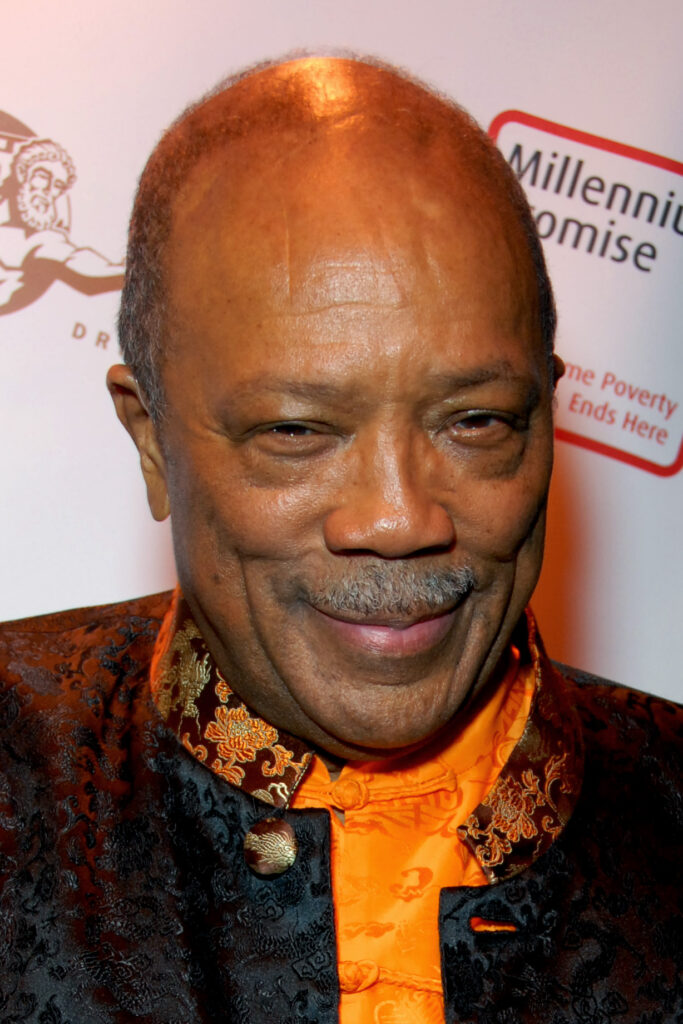
4. **The Architect of “We Are the World”**
Beyond his individual musical and executive achievements, Quincy Jones demonstrated an extraordinary capacity for unifying diverse talents for a common humanitarian cause, exemplified powerfully by the creation of “We Are the World.” This monumental 1985 charity record, aimed at providing crucial famine relief in Africa, stands as a testament to his unique ability to orchestrate collective genius for philanthropic good. He meticulously oversaw the all-star recording session, bringing together an unprecedented array of musical icons under one roof.
The sheer scale of the collaboration was staggering, featuring a roster that included luminaries such as Michael Jackson, Bob Dylan, Billy Joel, Stevie Wonder, and Bruce Springsteen, among a host of other global superstars. Jones’s exceptional leadership was absolutely crucial in navigating the complex logistics and harmonizing the often-divergent artistic sensibilities of such a diverse group of superstars, ensuring a cohesive and ultimately profoundly impactful final product. His commanding presence and unparalleled expertise provided the necessary gravitas to manage this ambitious and high-stakes project.
Lionel Richie, who not only co-wrote “We Are the World” but was also one of its featured singers, aptly encapsulated Jones’s indispensable role, referring to him with admiration as “the master orchestrator.” This evocative moniker perfectly captured Jones’s unparalleled skill in harmonizing distinct voices, disparate styles, and towering egos into a unified, powerful message that resonated globally. He understood precisely how to leverage immense star power for a cause far greater than individual accolades or commercial success.
The song transcended its charitable purpose, rapidly becoming a cultural phenomenon and one of the best-selling singles of all time. Its enduring appeal and the impactful funds it successfully raised for those suffering in Africa underscore Jones’s unwavering commitment to using his influential platform for global betterment and humanitarian aid. This project was not just a record; it was a powerful global statement of solidarity and compassion, meticulously guided by Jones’s visionary leadership and profound expertise.
Jones’s dedication to philanthropy became a central tenet and a driving force in his later life. He unequivocally stated, expressing his deeply held conviction, that “the best and only useful aspect of fame and celebrity is having a platform to help others.” His pivotal involvement with “We Are the World” was an early and prominent manifestation of this deeply cherished belief, demonstrating how he consistently leveraged his considerable influence to address pressing humanitarian crises and, in doing so, inspired countless others to contribute meaningfully to social causes worldwide.
Read more about: Waylon Jennings: Riding the Storm, Forging an Outlaw Legacy in Country Music
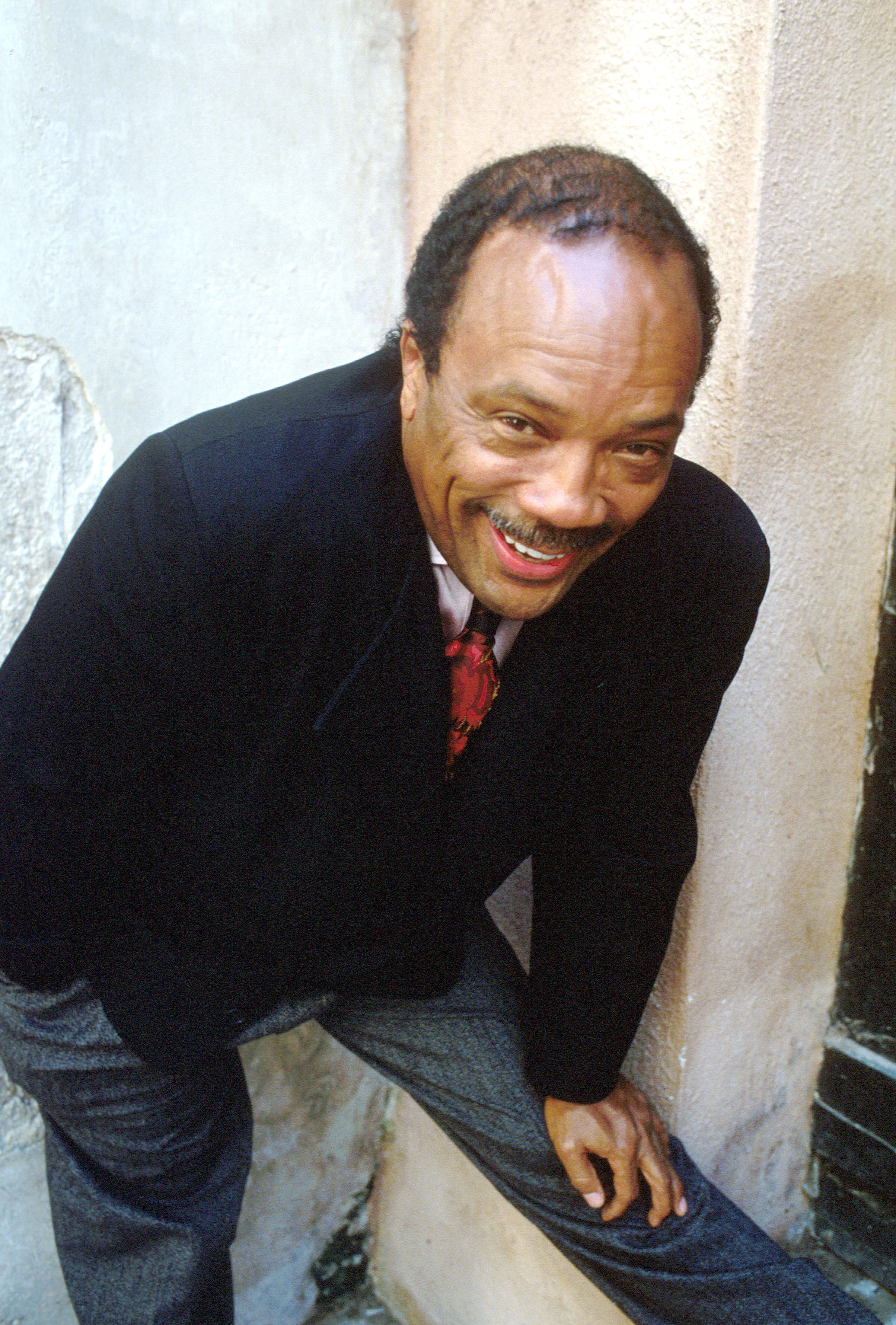
5. **Pioneering Film and Television Composer**
Quincy Jones’s musical genius was not confined to the recording studios and concert halls where he forged his early reputation; it seamlessly extended into the realm of visual storytelling, where he became a prolific and celebrated composer for both film and television. His remarkable ability to craft evocative soundscapes that profoundly enhanced cinematic and televised narratives cemented his reputation as a truly multifaceted artist. He scored more than 35 film scores, beginning his significant contributions to cinema in the 1960s, a testament to his prodigious output and incredibly versatile talent.
His cinematic contributions are iconic and widely acclaimed, including the powerful scores for critically acclaimed films such as “The Pawnbroker,” which showcased his dramatic range and emotional depth, and the intensely atmospheric “In the Heat of the Night,” for which his evocative soundtrack became instantly recognizable and enduring. He also lent his distinctive musical voice to “In Cold Blood,” further demonstrating his profound capacity to elevate complex, psychological narratives through meticulously crafted sound. His scores were never mere background music; they were integral components woven into the films’ emotional resonance and their overall artistic success.
Jones viewed the intricate process of scoring as a profound and intellectually stimulating creative endeavor, eloquently describing it as “a multifaceted process, an abstract combination of science and soul.” This insightful description reveals his methodical yet deeply intuitive approach to composing for the screen, blending technical precision with an unparalleled emotional depth. He possessed an inherent understanding of how music could subtly yet powerfully manipulate audience perception and significantly deepen the viewer’s connection to the unfolding drama on screen.
His pervasive impact also reached into the realm of television, perhaps most famously through his brilliant composition of the instantly recognizable theme song for the beloved sitcom “Sanford and Son.” This catchy and enduring tune became an indelible piece of American pop culture, demonstrating his exceptional ability to craft memorable music across diverse genres and various media platforms. His extensive work on television soundtracks further broadened his formidable reach and enduring influence, endearing him to millions of viewers across the nation.
Furthermore, his pivotal work on the soundtrack for “The Wiz,” the acclaimed 1978 film adaptation of the Broadway musical, proved to be a transformative moment not just for his burgeoning film career but for his entire legendary legacy. It was on this ambitious project that he first collaborated with the prodigious Michael Jackson, who starred in the movie. This initial collaboration would famously lead to their groundbreaking partnership on Jackson’s subsequent solo albums, a partnership that forever altered the course of popular music and inextricably linked Jones’s innovative film scoring work to one of his most celebrated and globally impactful production achievements.
Read more about: A Melancholy Note: Reflecting on the Enduring Legacies of 15 Jazz Legends We Lost in 2024-2025
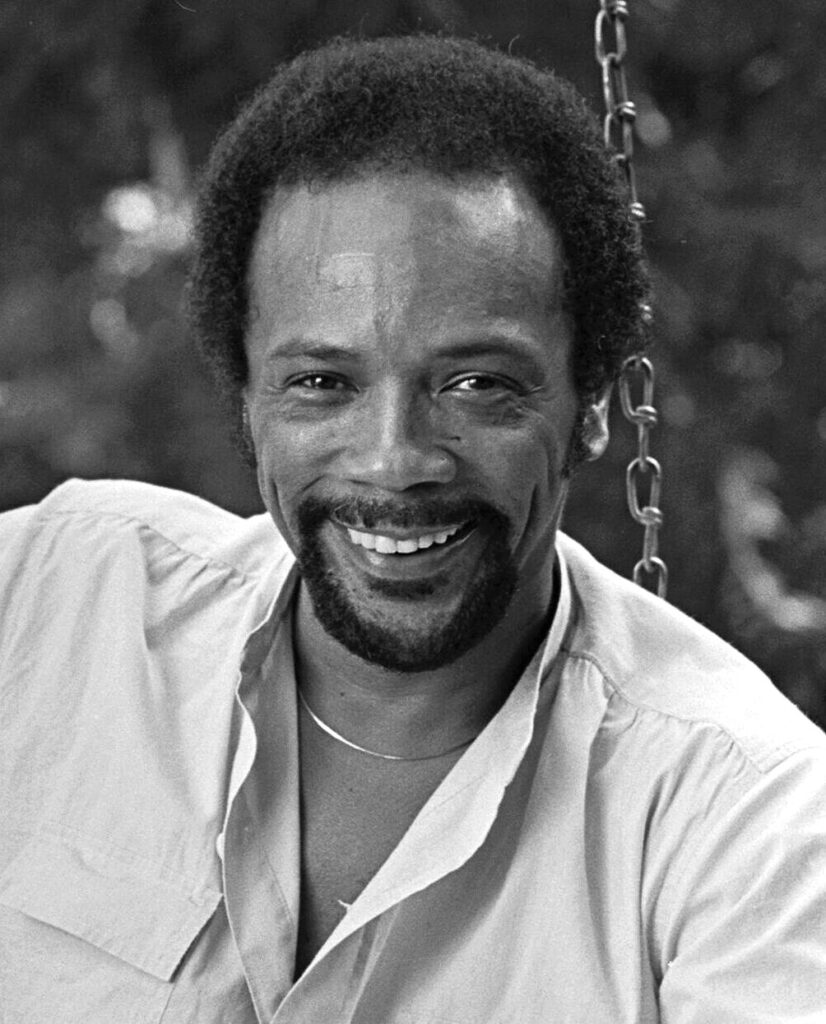
6. **Catalyst for Michael Jackson’s Stardom: The “Thriller” Revelation**
The collaboration between Quincy Jones and Michael Jackson stands as one of the most transformative and commercially successful partnerships in the entire history of music. This legendary association initially began during the production of “The Wiz” in 1978, where Jackson, then a child star undergoing a crucial transition to a solo career, was a prominent cast member. Jones, already a seasoned professional with a discerning eye for talent, was deeply impressed by Jackson’s unique abilities, intense work ethic, and raw star power observed during the rigorous rehearsal process.
Jones vividly recounted the precise moment he decided to pursue a deeper and more profound musical collaboration in an insightful essay published in Time magazine after Jackson’s untimely death in 2009. He recalled Jackson carrying slips of paper containing profound thoughts from famous thinkers. When Jackson, with his characteristic innocence, mispronounced “Socrates” as “SO-crayts,” Jones gently corrected him, prompting a memorable look from Jackson. It was this seemingly small interaction, combined with Jackson’s demonstrable and undeniable talent, that spurred Jones to make a bold and career-altering proposition.
“I’d been impressed by all the things I saw in him during the rehearsal process,” Jones remembered, leading him to state with conviction, “‘I would love to take a shot at producing your album.’” This offer, seemingly straightforward in its intent, faced immediate and significant resistance from Epic Records, Jackson’s record label at the time. Their skepticism was rooted in Jones’s established reputation within the jazz world: “No way — Quincy’s too jazzy,” they reportedly countered, fearing his jazz background wouldn’t suit the emerging pop sensibilities of their young artist.
However, Michael Jackson was resolute and utterly persistent in his vision. He, along with his astute managers, returned to the label executives, declaring with unwavering conviction, “‘Quincy’s producing the album.’” This unwavering belief and tenacious conviction ultimately prevailed over corporate doubts, decisively paving the way for Jones to take the helm as producer. The resulting album was the monumental “Off the Wall,” a commercial and critical success that not only defied the label’s initial doubts but also unequivocally propelled Jackson into a realm of unprecedented global superstardom.
Jones’s powerful account eloquently highlights the immediate and undeniable impact of this iconic collaboration, underscoring its profound success. He notably pointed out the profound irony: “‘Ironically, that was one of the biggest Black-selling albums at the time, and that album saved all the jobs of the people saying I was the wrong guy. That’s the way it works.’” This extraordinary partnership, born from a shared artistic vision, mutual trust, and Jackson’s unwavering faith, laid the foundational groundwork for an unparalleled run of musical innovation, creative genius, and astonishing commercial triumph that would forever reshape pop music.
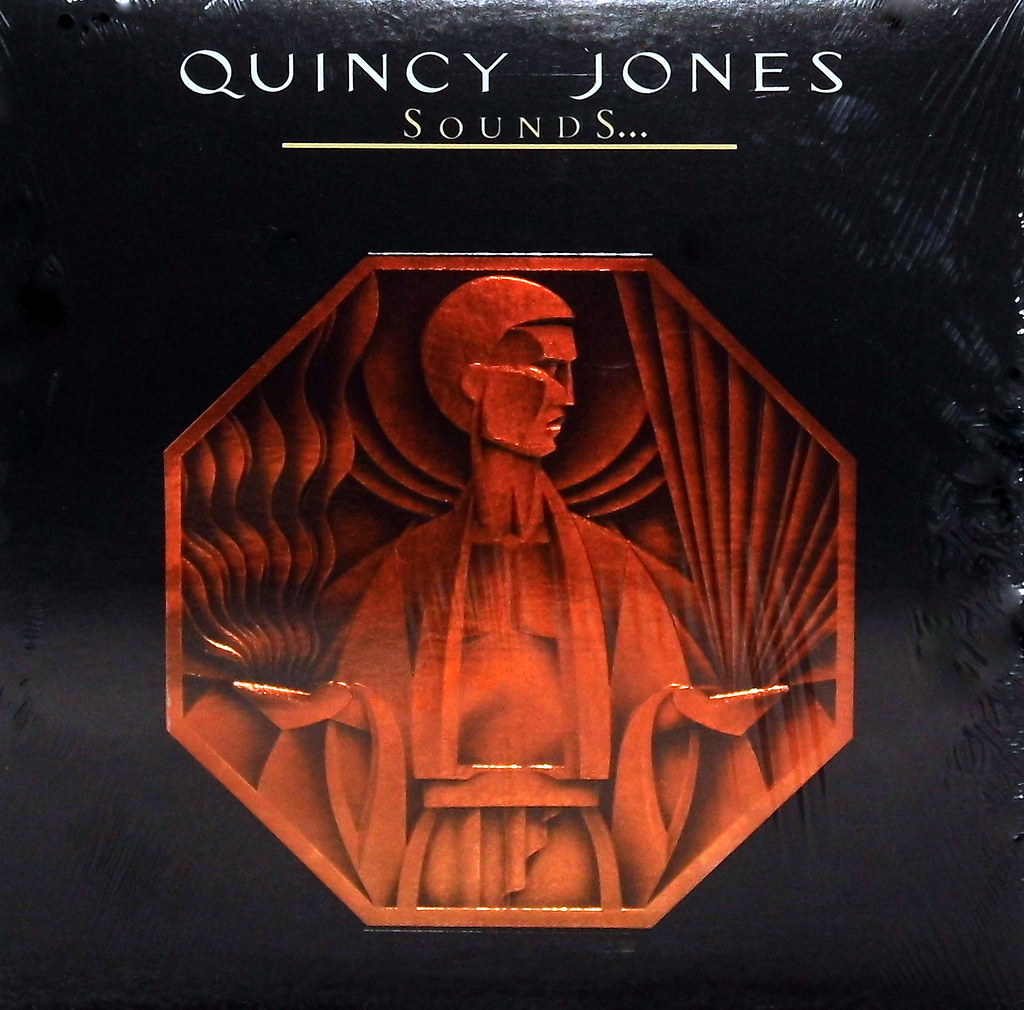
7. **Crafting a Global Sound: The Impact of “Thriller” and “Bad”**
Following the groundbreaking success of “Off the Wall,” Quincy Jones and Michael Jackson solidified their legendary partnership with the subsequent albums, “Thriller” and “Bad,” which would not only redefine popular music but also set unprecedented sales records that continue to influence the industry. Jones’s role as producer was absolutely pivotal in transforming Jackson from a gifted child star into the undisputed “King of Pop,” showcasing Jones’s extraordinary versatility, imaginative vision, and profound understanding of musical trends.
On these seminal albums, Jones and Jackson collaboratively fashioned a distinctive and universally appealing global soundscape, meticulously blending diverse musical genres with masterful precision. They seamlessly integrated elements of disco, funk, rock, pop, R&B, jazz, and even African chants into a cohesive, innovative, and universally appealing sonic tapestry. This audacious, genre-bending approach was truly revolutionary for its time, breaking down traditional musical barriers and creating something truly novel and enduringly popular across cultures and demographics.
Jones’s keen ear for innovation and his expansive professional network brought unique and unexpected elements to these iconic tracks, elevating them to legendary status. For “Thriller,” some of the most memorable and defining touches originated directly from his brilliant creative direction. He famously recruited the rock guitar virtuoso Eddie Van Halen for a blistering and unforgettable solo on the genre-fusing track “Beat It,” an audacious move that further blurred the lines between hard rock and commercial pop. This unexpected collaboration injected a raw, powerful energy that captivated audiences worldwide and became instantly recognizable.
Adding another layer of unforgettable brilliance and theatricality to the album’s title track, Jones also brought in the iconic horror actor Vincent Price for a chilling and ghoulish voiceover on “Thriller.” This theatrical addition perfectly complemented the song’s spooky narrative and its equally iconic music video, elevating it beyond a mere pop song into a full-fledged cultural phenomenon. These daring creative decisions underscored Jones’s unparalleled ability to infuse popular music with sophisticated artistic flourishes and captivating, unexpected collaborations.
The commercial success of “Thriller” was staggering beyond belief, selling more than 20 million copies in 1983 alone, and it has consistently contended with the Eagles’ “Greatest Hits 1971-1975” for the prestigious title of the best-selling album of all time. Jones eloquently articulated the producer’s crucial and often underestimated role in an insightful interview with the Library of Congress in 2016: “If an album doesn’t do well, everyone says ‘it was the producers fault’; so if it does well, it should be your ‘fault,’ too. The tracks don’t just all of a sudden appear. The producer has to have the skill, experience and ability to guide the vision to completion.” This profound statement perfectly encapsulated his philosophy and the deep, lasting impact he had on creating some of the most beloved and influential music in recorded history.
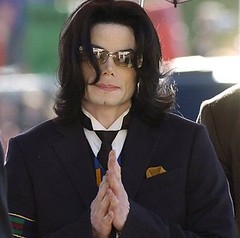
8. **A Spectrum of Sound: Collaborations Beyond the King of Pop**
While his transformative work with Michael Jackson remains a cornerstone of his legend, Quincy Jones’s musical genius was far from confined to that singular partnership. His career was characterized by an extraordinary ability to collaborate across genres and generations, shaping the sound of countless iconic artists. He served as an arranger, composer, and producer for a veritable who’s who of music, demonstrating a versatility that allowed him to move seamlessly between jazz giants, soulful crooners, and emerging pop stars.
Jones’s discerning ear and meticulous craftsmanship elevated the work of legends such as Frank Sinatra and Ella Fitzgerald. He famously arranged Sinatra’s ‘Fly Me to the Moon,’ imbuing it with a ‘punchy, swinging rhythm and wistful flute’ that became instantly recognizable and enduring. His collaborations extended to jazz luminaries like Count Basie, Lionel Hampton, Dizzy Gillespie, and Duke Ellington, showcasing his deep roots and continued reverence for the genre that first captivated him as a young musician.
His own artistic output also reflected this eclectic spirit. Jones’s critically acclaimed album, ‘Back on the Block,’ which earned him a Grammy for Album of the Year, stands as a testament to his ability to blend diverse influences into a cohesive and universally appealing sound. This album, along with his other independent projects, underscored his creative vision and his persistent drive to explore new sonic territories, maintaining his relevance as a recording artist in his own right.
This breadth of collaboration ensured that Jones’s influence permeated nearly every facet of American music. His ability to adapt his distinctive touch to such a wide array of artists, from the timeless elegance of Sinatra to the experimental sounds of his own records, solidified his reputation as a true maestro. He was not merely a producer but a facilitator of musical brilliance, bringing out the best in every artist he encountered.
Read more about: Sonny Curtis, Writer of ‘Mary Tyler Moore’ Theme and ‘I Fought the Law,’ Dies at 88
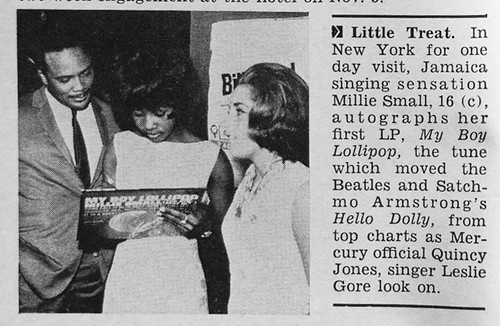
9. **The Maestro’s Touch: Orchestrating Diverse Musical Landscapes**
Quincy Jones’s unparalleled skill lay in his capacity to synthesize disparate musical traditions into a unified, globally resonant soundscape. He possessed an innate understanding of how to blend elements from disco, funk, rock, pop, R&B, jazz, and even African chants, creating a sonic tapestry that transcended cultural and demographic boundaries. This audacious, genre-bending approach was revolutionary for its time, dismantling traditional musical barriers and forging a path for future artists.
His expertise was evident not only in his monumental productions with Michael Jackson but also in his extensive work with other artists, where he consistently demonstrated a knack for crafting unique, innovative sound. For instance, his work on Ray Charles’s ‘In the Heat of the Night’ opened with a ‘lusty tenor sax solo,’ providing an evocative and instantly memorable introduction. He applied this same meticulous attention to detail and genre fusion across his vast discography, ensuring each collaboration bore his distinctive mark while allowing the artist’s voice to shine.
The enduring impact of Jones’s orchestrations is further underscored by the fact that his compositions and productions have been continually reinterpreted and sampled by subsequent generations of artists. Hip-hop icons like Tupac Shakur and Kanye West have drawn from his rich catalog, integrating his foundational grooves and melodies into new contemporary works. This continuous sampling illustrates how his musical creations remained relevant, inspiring and shaping the sounds of popular music decades after their initial release.
Jones’s role as ‘the master orchestrator,’ as Lionel Richie affectionately called him, was not just about technical skill; it was about a visionary approach to music production. He was able to see the potential in combining seemingly unrelated elements, transforming individual tracks into cultural touchstones. His profound understanding of rhythm, harmony, and arrangement allowed him to build bridges between different musical worlds, fostering a universal language of sound that continues to resonate.
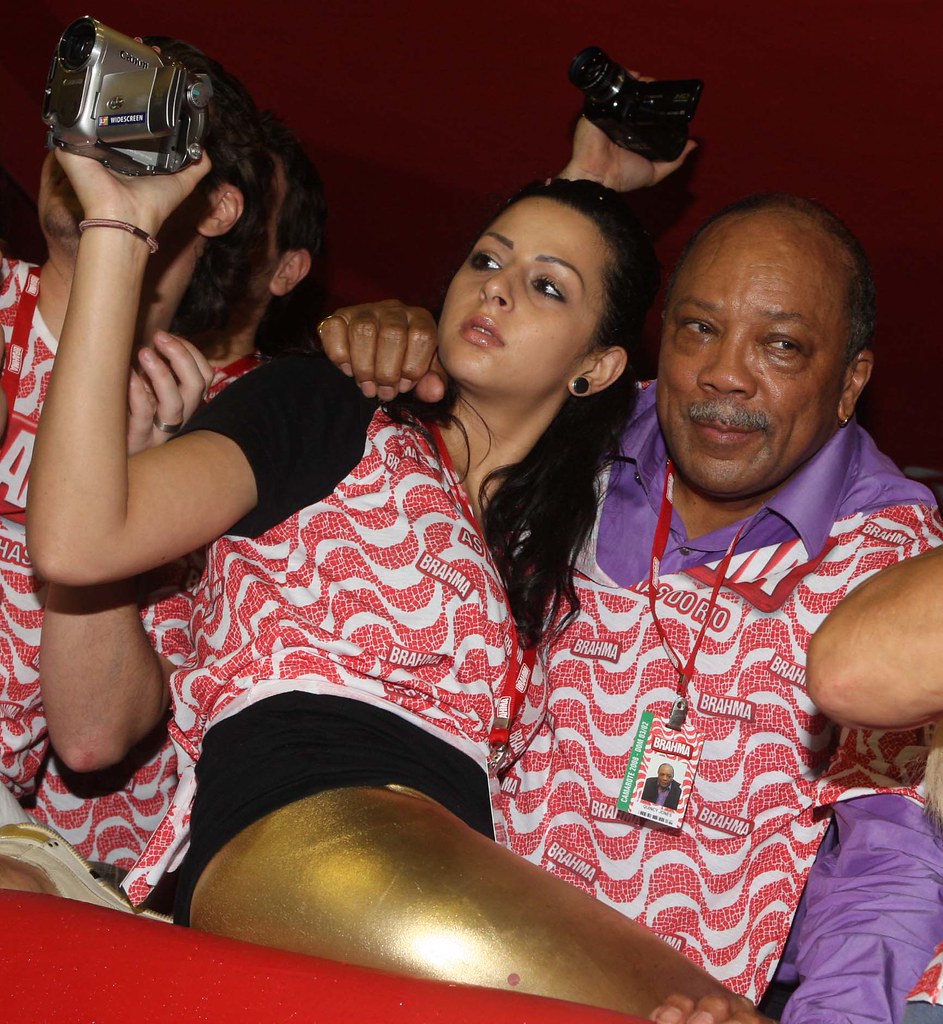
10. **From Vision to Venture: The Astute Businessman and Entrepreneur**
Early in his career, Quincy Jones recognized that artistic passion alone was insufficient for enduring success, acknowledging the critical distinction between ‘music’ and ‘the music business.’ This insight propelled him beyond purely creative roles into the realm of astute entrepreneurship, where he broke racial barriers and built significant business empires. His strategic decisions were as impactful as his musical arrangements, demonstrating a keen understanding of industry mechanics.
His entrepreneurial spirit manifested in the formation of Quincy Jones Entertainment (QJE), a diversified media company. Under this umbrella, he launched significant ventures, including the influential pop-culture magazine ‘Vibe,’ which quickly became a prominent voice in music and youth culture. He also established Qwest Broadcasting, a broadcasting company that further expanded his reach into media ownership and content distribution, solidifying his status as a formidable industry player.
The commercial success of these ventures was undeniable, culminating in the sale of Quincy Jones Entertainment to Time Warner for an impressive $270 million in 1999. This landmark deal underscored his formidable business acumen and his ability to transform creative vision into substantial economic value. His entrepreneurial achievements demonstrated that his influence extended far beyond the recording studio, impacting the structural landscape of the entertainment industry.
Jones’s approach to business was deeply rooted in his personal philosophy of respect and fairness. As he articulated in his autobiography, ‘My philosophy as a businessman has always come from the same roots as my personal credo: take talented people on their own terms and treat them fairly and with respect, no matter who they are or where they come from.’ This principle guided his strategic decisions, fostering environments where diverse talents could flourish and achieve their fullest potential, mirroring his impact on musical careers.
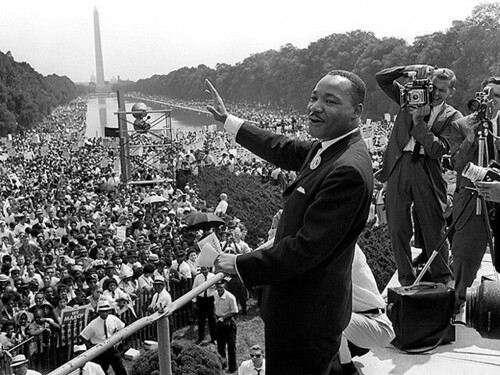
11. **A Conscience Awakened: Philanthropy and Social Impact**
While his early career was largely focused on musical and executive achievements, Quincy Jones’s social conscience was profoundly awakened following the 1968 funeral of the Rev. Martin Luther King Jr., marking a pivotal shift in his priorities. He subsequently befriended the Rev. Jesse Jackson, deepening his commitment to activism and social justice. This evolution underscored a personal conviction to leverage his considerable platform for humanitarian causes.
Jones dedicated significant portions of his later life to various philanthropic endeavors, channeling his resources and influence toward global betterment. His causes were diverse and impactful, including fighting HIV and AIDS, advocating for children’s education, and providing essential support for the poor around the world. These commitments reflected a deeply held belief in the responsibility that accompanies fame and success.
He unequivocally stated that ‘the best and only useful aspect of fame and celebrity is having a platform to help others,’ a guiding principle that informed his extensive charitable work. This philosophy was not merely rhetorical; it was demonstrated through tangible actions and organizations. His pivotal involvement with ‘We Are the World’ in 1985, a monumental charity record for famine relief in Africa, served as an early and prominent manifestation of this conviction, raising significant funds and global awareness for those in need.
Further cementing his commitment to youth development and cultural enrichment, Jones founded the Quincy Jones Listen Up! Foundation. This organization was established with the mission to connect young people with music, culture, and technology, providing opportunities and inspiration for future generations. Through these concerted philanthropic efforts, Jones transcended the role of a music titan to become a dedicated global humanitarian, leaving an indelible mark on social causes worldwide.

12. **A Pantheon of Accolades: Honors and Global Recognition**
Quincy Jones’s illustrious career was adorned with a staggering array of honors and awards, a testament to his profound and multifaceted contributions to music, film, and culture. The sheer volume of his accolades is striking, with the list filling 18 pages in his 2001 autobiography, ‘Q.’ These honors reflect not only the breadth of his talent but also the consistent excellence he maintained across decades in various creative and executive roles.
Among his most cherished recognitions were his numerous Grammy Awards, a remarkable 28 at the time of his passing, making him one of the most awarded artists in Grammy history. He also received an Emmy for his evocative soundtrack to ‘Roots,’ underscoring his impact on television, and two honorary Academy Awards, acknowledging his groundbreaking work and enduring influence in the cinematic arts. These awards represent the pinnacle of achievement in their respective fields, highlighting his mastery across different media.
His influence resonated beyond American borders, earning him significant international recognition. He was bestowed with France’s prestigious Legion d’Honneur, a profound acknowledgment of his cultural contributions on a global scale. Additionally, he received the Rudolph Valentino Award from the Republic of Italy, further cementing his status as a universally celebrated artistic figure, admired and honored across diverse cultural landscapes.
Jones’s legacy was also celebrated through enduring tributes and biographical works. He was honored with a Kennedy Center tribute for his invaluable contributions to American culture, a testament to his profound impact on the nation’s artistic heritage. His life and work were further chronicled in the 1990 documentary ‘Listen Up: The Lives of Quincy Jones’ and a 2018 film by his daughter Rashida Jones, ensuring that his extraordinary journey and vast achievements remain documented and celebrated for generations.
Read more about: Joan Jett at 67: The Unyielding Power of a Rock & Roll Icon Who Only Gets Cooler
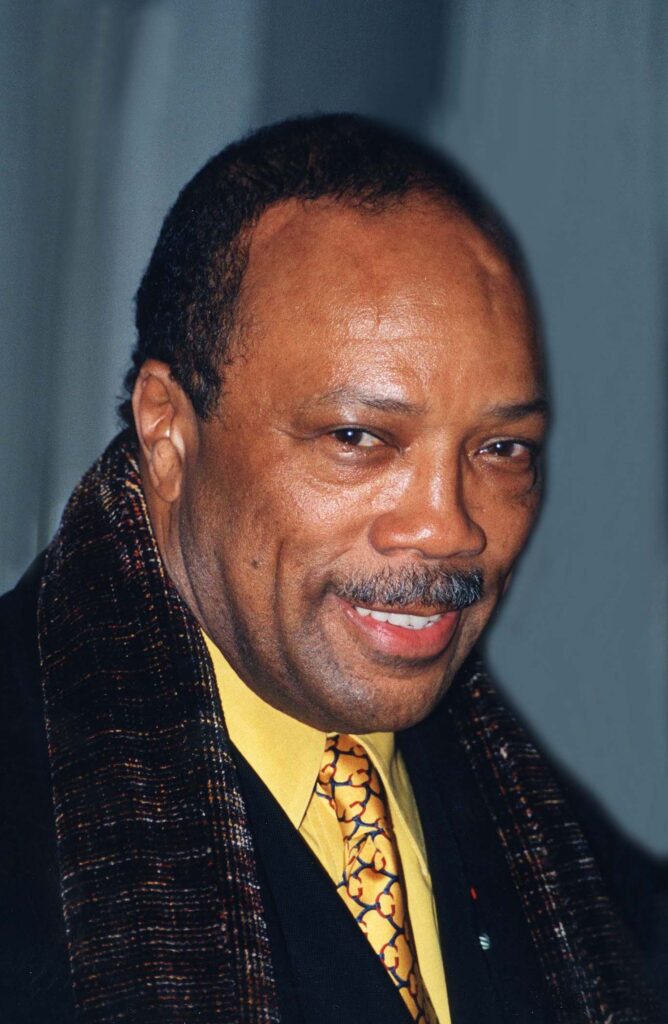
13. **Reflections and Resilience: Life’s Personal Triumphs and Tribulations**
Beyond his public triumphs, Quincy Jones navigated a life marked by significant personal challenges and periods of profound introspection. His demanding career and intense creative process sometimes took a toll on his health. In 1974, he nearly died from a brain aneurysm, an event that provided a stark reminder of life’s fragility and likely deepened his appreciation for his continued ability to create and contribute.
Later in the 1980s, Jones experienced a period of deep depression following the Academy Awards’ snub of ‘The Color Purple.’ Despite receiving 11 Oscar nominations, the film ultimately won none, a outcome that, to his ‘great disappointment,’ affected him profoundly. This episode revealed the emotional investment he placed in his projects and the personal weight he carried, even amid widespread critical acclaim for his other works.
His autobiography offered candid insights into his complex personal life, including his relationships and family. A father of seven children by five mothers, Jones described himself as a ‘dog’ in matters of love, acknowledging his numerous relationships around the world. He was married three times, including to the actor Peggy Lipton, and his reflections on love were deeply personal: ‘To me, loving a woman is one of the most natural, blissful, life-enhancing — and dare I say, religious — acts in the world.’
Despite these personal complexities and challenges, Jones maintained an indomitable spirit. He often spoke of being driven throughout his life ‘by a spirit of adventure and a criminal level of optimism,’ a philosophy that enabled him to persevere through both the profound highs and the difficult lows. This unwavering belief in possibility underpinned his creativity and resilience, shaping not just his career but his very approach to living.
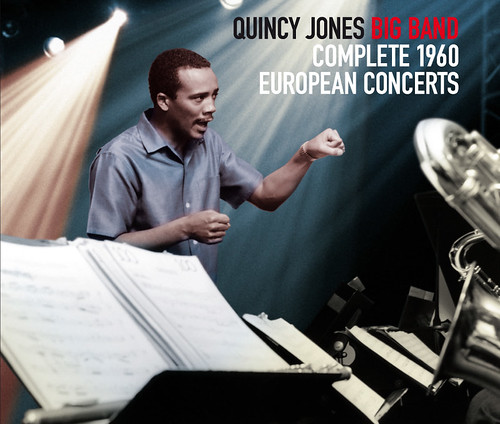
14. **An Everlasting Symphony: The Undeniable and Enduring Legacy**
Quincy Jones’s passing marked the end of an era, but his legacy, a sprawling tapestry woven with threads of innovation, influence, and enduring artistry, ensures that his impact will resonate for centuries. He was not merely a composer, producer, or executive; he was a cultural architect whose vision reshaped the landscape of American and global music, leaving an indelible mark on how we hear and experience sound.
His extraordinary versatility allowed him to connect generations, genres, and cultures. From mentoring a young Ray Charles to propelling Michael Jackson to global superstardom, and from composing evocative film scores to launching groundbreaking media ventures, Jones’s influence permeated every aspect of entertainment. He fostered talent, broke down barriers, and continuously innovated, ensuring his contributions were both monumental and timeless.
As he eloquently described his own existence, Jones’s life truly was ‘in Technicolor, with full Dolby sound through THX amplification before they knew what these systems were.’ This vibrant self-description perfectly encapsulates the richness, depth, and pioneering spirit that defined his journey. His creative spirit, boundless energy, and insatiable curiosity fueled a career that constantly pushed the boundaries of what was possible in music and beyond.
Quincy Jones’s heart, through his music and his boundless love, will indeed beat for eternity. His journey from the challenging streets of Chicago to the pinnacle of global influence is a powerful testament to the transformative power of art, vision, and an unwavering commitment to excellence. His life’s work stands as a permanent symphony, a source of inspiration and joy that will continue to move and connect humanity for generations to come.



